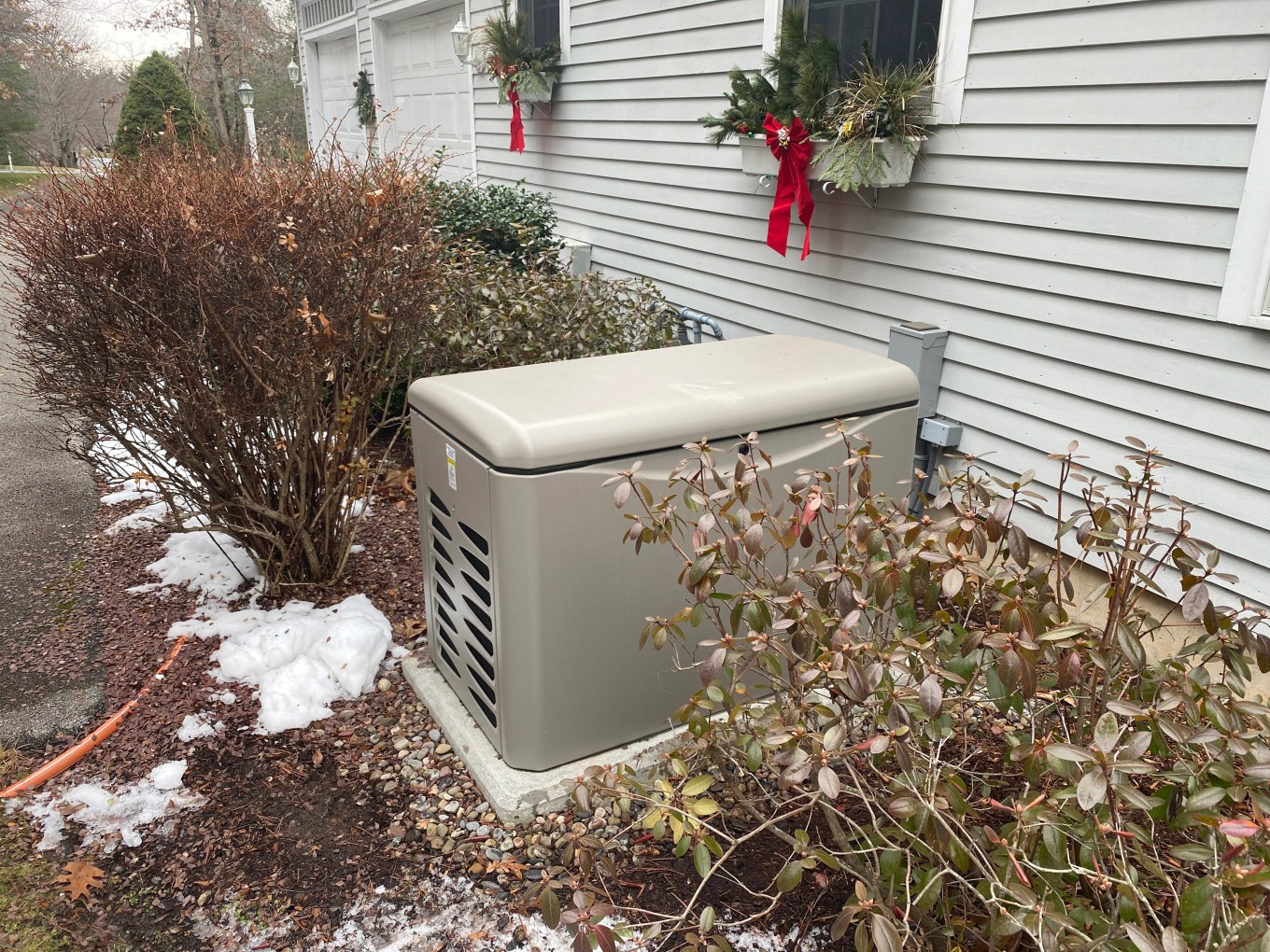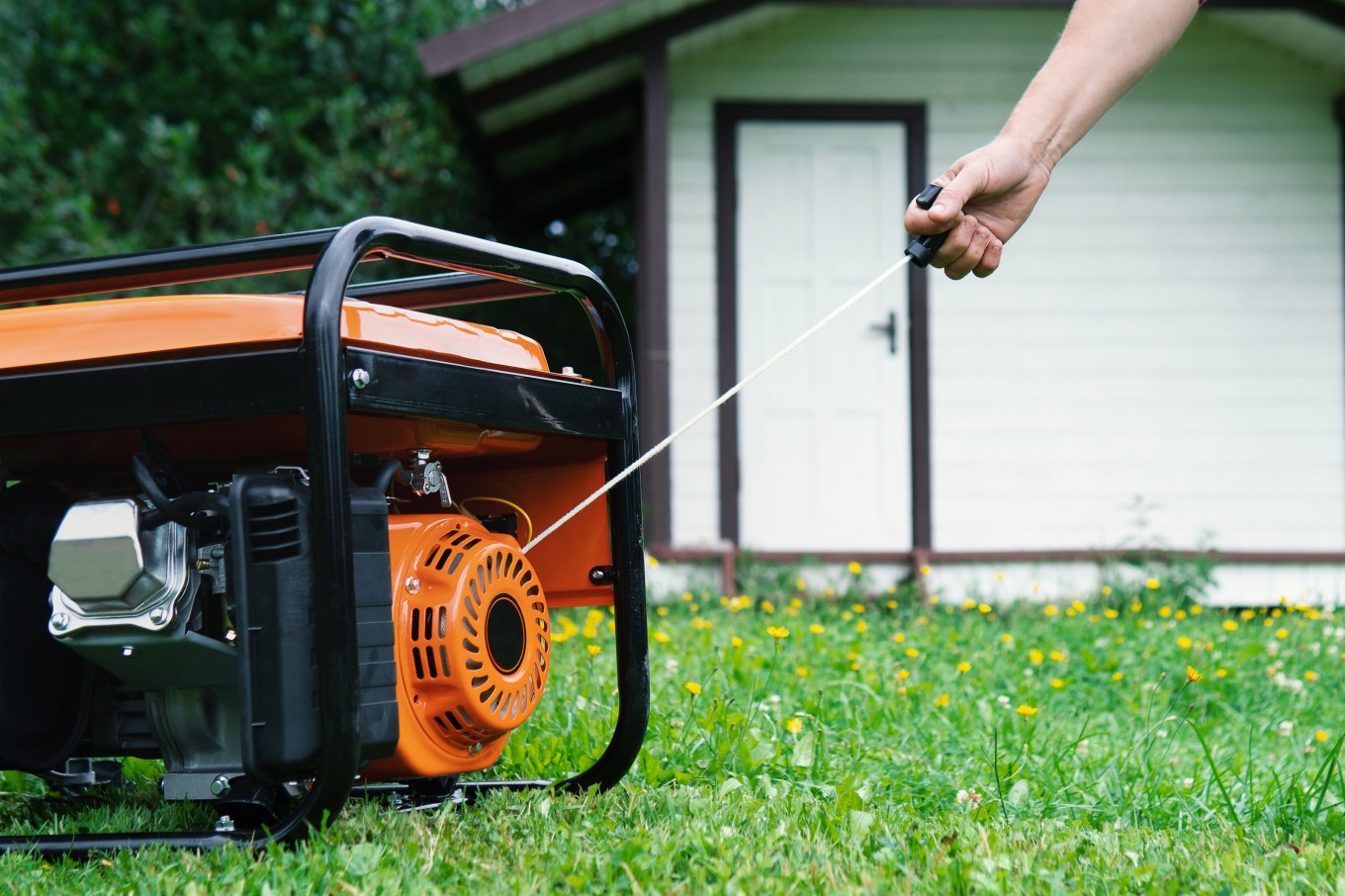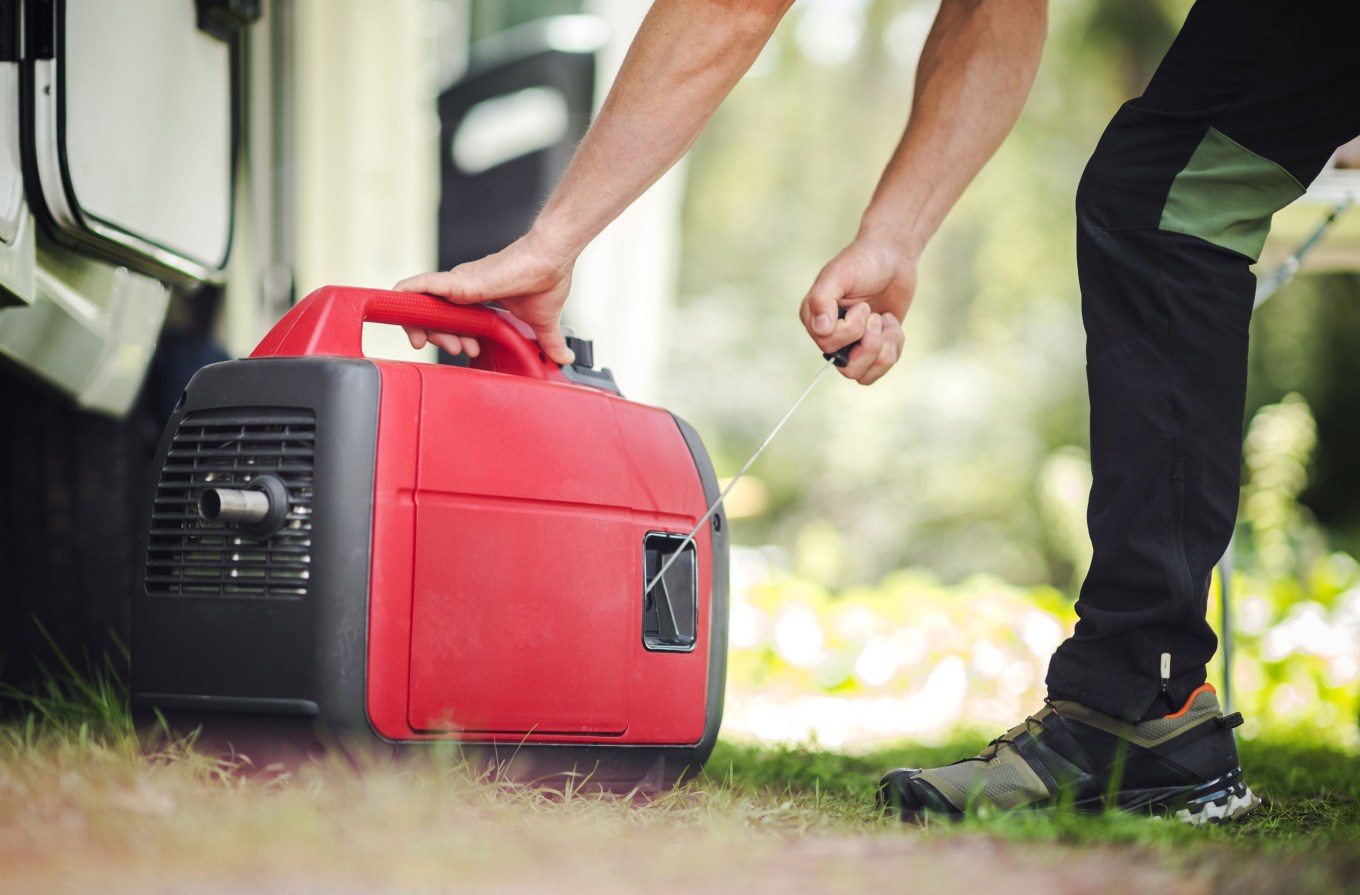Power outages can deliver uncertainty and financial fallout for homeowners who are unprepared. With power outages on the rise, that potential is increasing. The North American Electric Reliability Corp. expects homeowners in wide swaths of the U.S. to be susceptible to power outages this year. During the coming colder months, floods, blizzards, ice storms, and more could cause power outages. But homeowners can find protection in home generators.
That doesn’t mean the option is a quick decision, though. Generators come in an array of sizes and types, and higher-end models represent a substantial investment for most people. But your decision will be easier if you explore the breadth of generators available, how much power they may need, and whether buying a generator would be worth it for you.
Home Generator Basics: Understand the Types Available
Whole home generators are back-up power sources that are used during power outages. Just Energy, a retail energy provider, says there are three types of generator.
#1 Standby or Whole-Home Generators

Standby generators, also called whole-home generators, are the most powerful type and power entire homes, including air conditioners, water heaters, and appliances. Powered by natural gas through existing gas lines, they deliver dependable standby power during outages in regular power supply. However, they’re the most expensive type of generator.
“When a power outage occurs, the [standby] generator automatically turns on and begins to supply power to the house,” says Clement Feng, vice president of product management for Briggs & Stratton Energy Solutions, based in Oxnard, Calif. “[These] generators can be used to power the entire home or just a selected number of the most important circuits. They will run indefinitely as long as there is fuel. Natural gas lines are unlimited.”
Pro: Can deliver the most power.
Con: Most expensive option.
#2 Portable Generators

Portable generators are small and mobile, often feature wheels, and can be taken to campgrounds or worksites in cars or trucks. They typically run on gas or propane and are much more affordable than whole-home generators. While they're much less powerful than standby generators, they can keep the lights on during short-term outages.
The fuel source can present a problem. “The challenge of gasoline is it doesn’t store,” says Kris Kiser, president and CEO of Outdoor Power Equipment Institute, based in Alexandria, Va. “It includes ethanol. You have to buy enough when you think you might be without power. The problem is that often when your house is out of power, the gasoline station will also be out of power. That’s an argument for the standby, or whole-home, generator.”
Pro: Small and mobile.
Con: Less power.
Best for: short term use.
#3 Inverter Generators Charge Up Electronics

Inverter generators create current that's sufficiently stable power to charge electronics like laptops or phones. They’re primarily used to recharge battery-operated devices.
The upsides are that they operate more quietly, use less fuel, and are available in portable and full size. One significant downside is that they can’t power large appliances.
Other disadvantages of both inverter and portable generators include the need to set them up at least 20 feet from buildings to prevent carbon monoxide poisoning. Also, both can be moved around like wheelbarrows, which means they can easily be stolen during a neighborhood power outage, “it’s easy to find the home with the lights on, and people go after that generator,” Kiser says. “You need to secure that generator."
Also, the proper cords to run these generators need to be at a safe distance from the house, Kiser adds. "You don’t want to run it in a breezeway, indoors, in the garage, or near an open window or door. You need heavy-duty extension cords long enough to run a safe distance from the home, that will carry the power you need.”
Who Needs a Home Generator?
You may think of generators as a solution for people in high-risk areas affected by hurricanes and floods. But home generators can be useful to homeowners in other situations. “It could be a tornado, or fallen trees,” Kiser says. “Heavy wet snow will bring down power lines, as will ice and fire.
Here are a few representative questions to help you assess how important electricity is in your house:
- Do you need to protect food?
- Do you need to protect Grandma, who’s on an oxygen machine?
- Is your life or safety at risk if you don’t have power? “If it’s 30 below zero, the answer is yes,” says Kiser.
A home generator might especially benefit homeowners in these circumstances:
- Living in a susceptible location: Any homeowner in a place that’s susceptible to power outages would benefit from a standby generator to avoid inconvenience, Feng says. “Examples include vacation homeowners with property that stands unoccupied for extended periods, elderly or disabled people who would have difficulty leaving their homes, [and] frequent travelers.”
- Wintering in warmer climates: Those who winter in warmer climates than their primary home are strong candidates for standby generators. “If you live in Minnesota or Northern Wisconsin and you want to go to Florida for the winter, you need a generator to kick in so your pipes don’t freeze during a winter cold snap,” Kiser says.
- Having a medical condition: For those who have a household member with a medical condition, Kiser asks, "Would you be comfortable being out of power for a day or possibly seven days?”
- Adding property investment value: “Generators are increasingly relevant for homeowners invested in preserving the value of their property in an evolving climate landscape, says Kris Mullins, chief marketing officer of Capital Max, an investment and advisory firm in Fort Lauderdale, Fla. For instance, those owning vacation homes or rental properties in moderately stable areas could see a generator as a strategic asset. These properties may sit vacant or host short-term tenants who expect uninterrupted power. A generator is a competitive differentiator that enhances property appeal.”
- Supporting green tech and smart homes: Generators could also be valuable for those who invest in solar power or other green technologies and can use generators to support their off-grid solutions, Mullins says. Additionally, homeowners who transform their residences into smart homes with sophisticated automation require reliable power.
Key Questions to Ask Before Buying a Home Generator
If you're considering the appropriate type of home generator to buy and at what price point, Mullins suggests asking questions like these:
- Am I protecting a part of my home that drives my income, preserves medications, or supports my family’s safety during extreme weather?
- How resilient is my current lifestyle? What level of disruption can I afford?
- Long term, is this an investment in property value or a stopgap solution?
- What ongoing costs and responsibilities -- like maintenance, fuel storage, and regulatory compliance -- am I prepared to shoulder?
In addition, it's wise to ask about warranties on the equipment because home generators require ongoing routine maintenance, such as oil changes and battery replacement, Feng says. The best home generator warranties cover parts, supply, and labor, he adds. With a standby generator, it also makes sense to ask whether the installer offers a preventive maintenance program.
What Financial Losses Could a Home Generator Prevent?
When sizing up costs, think about the significant losses that can result from a power outage. Feng offers examples and price estimate for a few of the expenses that home generators could prevent:
- Spoiled food: $100 to $500
- Hotel or motel stays per night: $150 to $300
- Damage to sensitive equipment: $1,000 to $5,000
- Replacement of medicines that require refrigeration: $50 to $500
- Property damage from ruptured water pipes, failed sump pumps: $20,000 and up

Power Capacity: Standby vs. Portable vs. Inverter Generators
You'll also want to ask is about the power capacity levels of the three generator categories. Feng describes these ranges for each type:
- Standby generators operate with air-cooled engines similar to garden equipment or motorcycles. Power capacity extends from 7,500 watts to 26,000 watts, sufficient to power an average single-family house.
- Conventional portable generators “provide the most bang for the buck,” but they’re noisy and must be refueled often. Power capacity ranges from 4,000 watts to 20,000 or more watts.
- Inverter-style portable generators have a power capacity that is comparatively light, with output extending from 1,000 watts to 7,000 watts. The most popular inverter generators are 2,000-watt models.
What Do Home Generators Cost?
Given the cost of generators, most homeowners factor in pricing when considering or shopping for a home generator.
Residential standby generators have become more affordable in recent years, Feng says. A small standby generator starts at $3,000 plus installation, but would permit only a limited array of circuits to be powered. Typical standby generators range from $12,000 to $15,000 installed and would provide enough power to support all the home’s appliances and HVAC system. “In some areas, local permitting requirements could add on some other costs,” he adds.
Portable generators designed to furnish power to one room of a home for a limited time can be expected to cost between $500 and $2,000, according to CNET. Critical systems portable generators, intended to provide power for essential systems like heating, lighting, and kitchen appliances, can cost $2,000 to $6,300.
Inverter generators run from $350 to more than $4,000, according to "Consumer Reports."
DIY Home Generator Installation: Risks and Expert Advice
Can you DIY the installation of standby generators to save money? Experts don’t recommend it. Wiring a generator into the electrical distribution channel of a home is likely to pose many hurdles, Feng says. An added complication is that the installation of a standby usually has to be coordinated with the local utility company. Kiser puts it bluntly: “This is a DIY project only if you are a licensed electrician.”
Does a Home Generator Affect Home Resale Value?
There's good news, though, about whether home generators affect home resale value or marketability. “Most definitely," Feng says, "The industry rule of thumb is that a backup power generator can add 4% to the value of a home. Other measures peg the return on investment of a backup generator in the 60% to 70% range.”
Given the prospect of more power outages and more impact on your finances, safety, convenience, and peace of mind, a home generator is worth exploring. Evaluate the types, pros and cons, capacity, and costs to see which option might be right for you.
